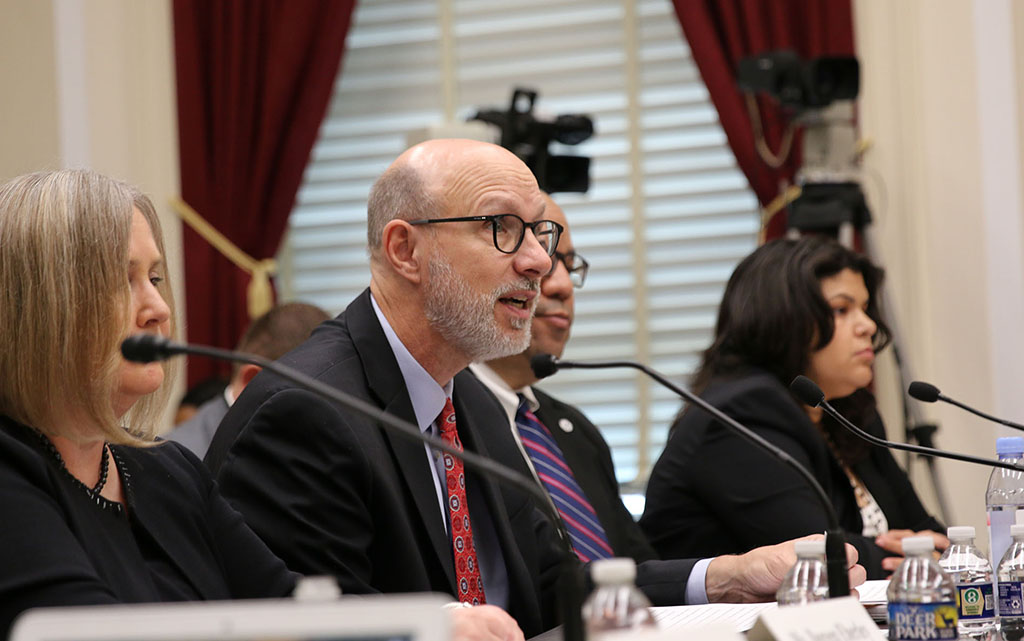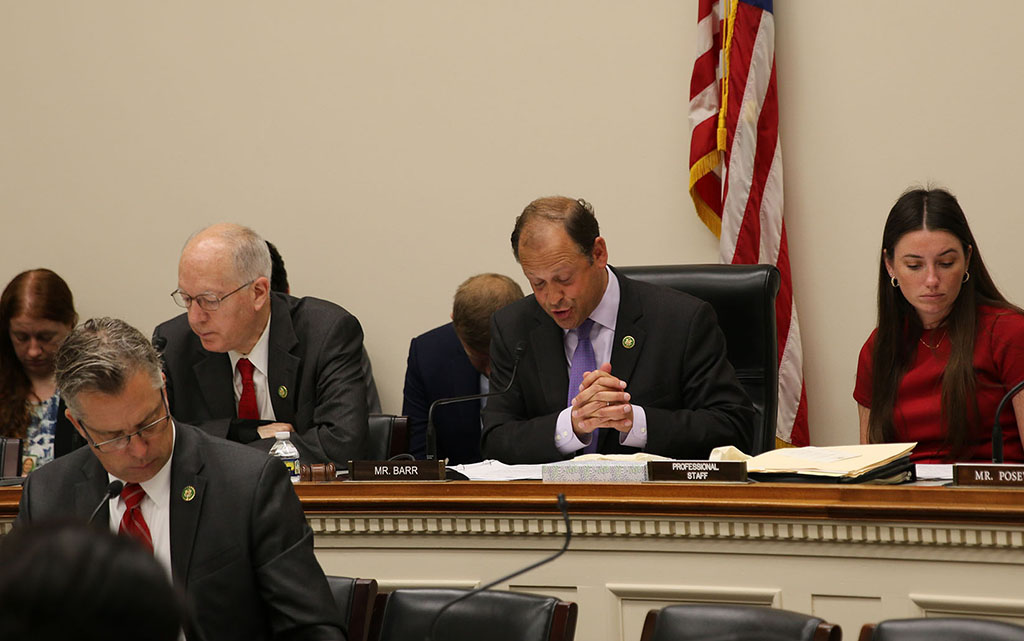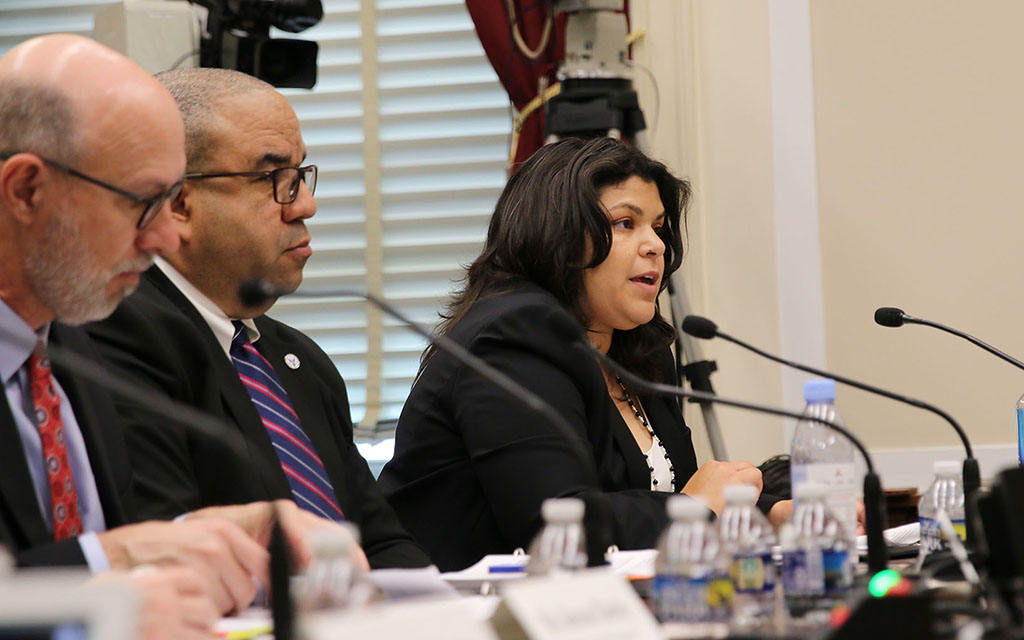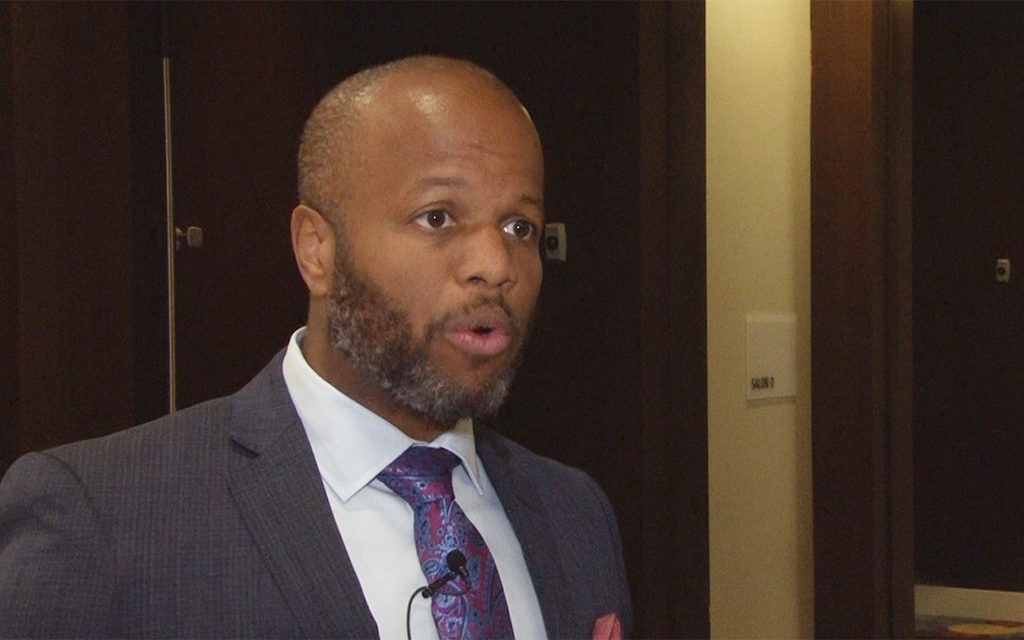WASHINGTON – Coconino County Treasurer Sarah Benatar told House lawmakers Tuesday that it’s her job to get the best, and safest, return on public investments for taxpayers, but that “anti-ESG” legislation puts public dollars at risk.
Anti-ESG legislation is an umbrella term for conservative-backed bills that limit consideration of environmental, social and governance – or ESG – factors in financial decision making. They say financial regulators should not sacrifice investment return to prioritize non-financial ESG factors in business and financial dealings.
But Benatar said those laws prevent state and local financial officials like her from considering climate as a financial risk factor in investment decisions and by reducing service banking competition – which hurts local economies.
“We have to consider climate risk as part of our financial risk analysis and we should be able to do so,” Benatar said after testifying to a House Financial Service subcommittee. “To ignore it in the business of finance is honestly doing a huge disservice to me, to my constituents and to all of us at a local level for our constituents and our taxpayers.”
GOP lawmakers on the committee disagreed, arguing that allowing financial regulators to consider ESG and climate-risk factors in financial decision making overly politicizes what should be purely economic decisions.
Benatar was part of a panel that included officials from the Federal Reserve, the Federal Deposit Insurance Corp., the National Credit Union Administration and the Comptroller of the Currency, who were grilled by GOP lawmakers on political motives of their agencies.
Rep. Andy Barr, R-Ky., said the hearing – titled “Climate-Risk: Are Financial Regulators Politically Independent?” – was called to address “the lack of transparency” about regulators’ climate-risk efforts given the Biden “administration’s posture on climate-related financial risk.” He said ESG-friendly policies aim to politicize credit lending and are “an attempt to bankrupt the energy sector in our economy.”

Michael Gibson, the Federal Reserve’s director of supervision and regulation, testified that the Fed studies how climate change might affect banks’ business, but it does not set climate policy for banks. (Photo by Sydney Carruth/Cronkite News)
That was echoed by Rep. Blaine Luetkemeyer, R-Mo., who said he finds it “troubling that supposedly independent bank regulators are now trying to insert partisan climate policies under the guise of helping financial institutions … guard against climate-related financial risks.”
But panelists repeatedly rebuffed the lawmakers, saying that they have an obligation to study the possible impact of climate change on financial institutions – but that they do not set climate policy, which is the job of Congress.
“It’s our responsibility to make sure banks are considering the risks they face,” said Michael Gibson, director of supervision and regulation for the Fed’s board of governors.
Benatar agreed, saying that while anti-ESG laws are often called “fair access” bills, they are really anti-free market bills. They could drive up costs for taxpayers by reducing local banking competition, which Benatar said is “vital for ensuring the protection and efficient use of taxpayer dollars.”
“The introduction of anti-ESG legislation in states like Arizona will push numerous bidders out of the process entirely,” Benatar said. “At best, counties like ours would have one option to select from and would have to suffer higher costs.”
The hearing comes as a growing number of states, including Texas, Florida and Kansas, are passing anti-ESG legislation under the direction of conservative lawmakers who say the bills protect the fossil fuel industry- and states whose economies rely on it.
Arizona Gov. Katie Hobbs last month vetoed a state Senate bill that would have prohibited public entities from requiring that companies adopt ESG standards as a condition of doing business with the government.
“I do not believe that tying the hands of the State’s procurement and investment professionals is in the best interests of the people of Arizona,” Hobbs said in her veto message.
Benatar said states that have passed anti-ESG laws – which do everything from constraining bank discretion in making loans and encouraging boycotts of companies with ESG priorities – now struggle with increased costs and a reduction in the number of companies they can do business with.
She said there are currently only five banks in Arizona that are capable of providing services to counties and she worries that anti-ESG legislation will reduce competition even further, giving counties even fewer options than they have now.
At worst, she said, Coconino county would not get any bids for its banking services, causing the local economy to “suffer gravely” as consumer costs “increase significantly.”
Benatar also worried that anti-ESG legislation would prohibit her from considering all risk factors – including climate – when weighing the risks of an investment. As an official of a county that has faced “numerous wildland fires, flooding events, tornados, record snowfalls, record heat levels, and a drought,” she said, she should be able to consider environmental risk when “looking to decide what corporate bond to purchase.”
“Anything that’s going to make it where I can’t do business with organizations or financial institutions because they are actually looking at all the risk, which is what I should be doing as well, that’s going to hurt our taxpayers,” Benatar said.
In his closing after the two-hour hearing, Barr said he was “sorry to say” that the witness testimony “perpetuates concerns that regulators focused on climate-related financial risk will in fact politicize credit allocation.”
Benatar disagreed, saying climate risk is a very real concern for Arizona taxpayers and investments.
“It’s not a politicized endeavor, it really isn’t,” she said. “We look at risk. In my world, that is the top priority. That means looking at all kinds of risk and we have to adapt to risk as ever-changing and climate risk is real.”



